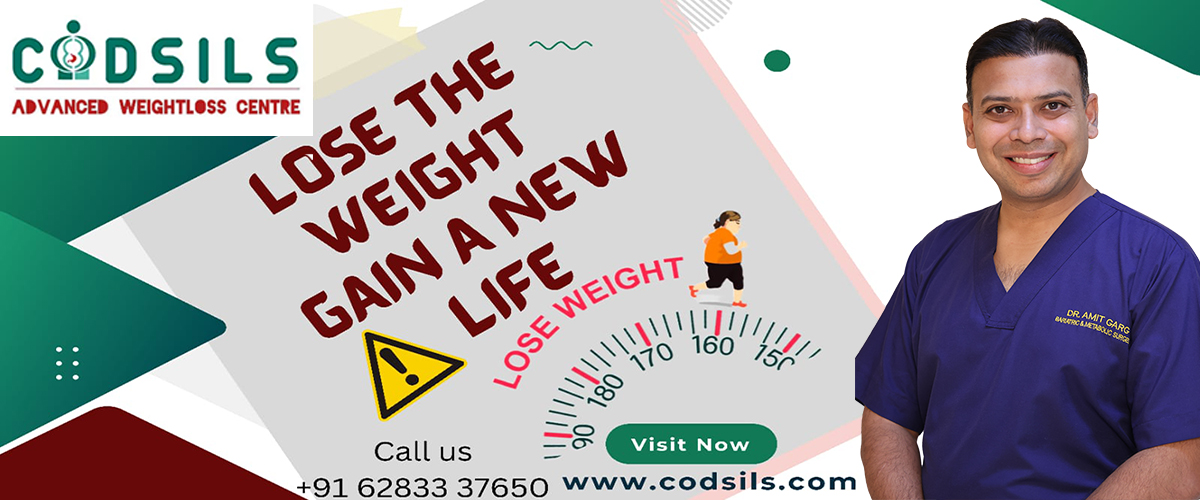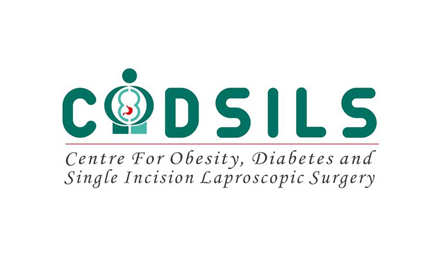
10 Oct Side effects of bariatric surgery / Complications of Weight loss Surgery
Have you ever dreamed of shedding those extra pounds and transforming your life through bariatric surgery? While the promise of significant weight loss and improved health is enticing,
it’s crucial to understand the potential side effects and complications that come with such a life- changing decision. Bariatric procedures like mini gastric bypass can be revolutionary, but they’re not without risks.
From common post-operative issues to long-term complications, the journey after bariatric surgery can be challenging. Nutritional deficiencies, surgical complications, and even psychological effects are all part of the package that patients must navigate. But here’s the good news: with the right surgeon and proper care, these risks can be minimized significantly. That’s where Dr. Amit Garg comes in, boasting the lowest complication rate in North India for bariatric procedures.
In this comprehensive guide, we’ll explore the side effects and complications associated with bariatric surgery, with a special focus on mini gastric bypass. We’ll delve into common side effects, nutritional concerns, surgical risks, long-term issues, and the psychological impact of these procedures. Plus, we’ll discuss how choosing the right surgeon – like Dr. Amit Garg – can make all the difference in your weight loss journey. Let’s uncover the truth about bariatric surgery and equip you with the knowledge to make an informed decision.
Common Side Effects of Bariatric Surgery
Bariatric surgery, including mini gastric bypass, can lead to significant weight loss and improved health. However, patients should be aware of common side effects that may occur in the weeks and months following the procedure.
A. Nausea and vomiting
Nausea and vomiting are frequent complaints after bariatric surgery. These symptoms typically occur due to:
- Adjusting to smaller portion sizes
- Eating too quickly
- Consuming foods that are difficult to digest
To manage these symptoms:
- Eat slowly and chew thoroughly
- Avoid drinking fluids with meals
- Follow post-operative dietary guidelines closely
B. Hair loss
Temporary hair loss, known as telogen effluvium, is common after bariatric surgery. This occurs due to:
- Rapid weight loss
- Nutritional deficiencies, particularly protein and zinc
| Nutrient | Food Sources | Supplement Options |
| Protein | Lean meats, eggs, dairy | Protein shakes, powders |
| Zinc | Oysters, beef, pumpkin seeds | Zinc tablets, multivitamins |
C. Fatigue and weakness
Patients often experience fatigue and weakness in the initial weeks post-surgery. Contributing factors include:
- Reduced calorie intake
- Body’s adjustment to rapid weight loss
- Potential vitamin B12 deficiency
D. Digestive issues
Various digestive problems may arise after bariatric surgery:
- Constipation
- Diarrhea
- Acid reflux
- Dumping syndrome (rapid emptying of stomach contents into the small intestine)
To minimize these issues:
- Stay hydrated
- Incorporate fiber-rich foods gradually
Avoid trigger foods that cause discomfort
Long-Term Complications
While bariatric surgery can be life-changing for many patients, it’s important to be aware of potential long-term complications. These issues may arise months or even years after the procedure, requiring ongoing monitoring and care.
A. Hernias
Hernias are a common long-term complication of bariatric surgery, particularly incisional hernias. These occur when internal tissues push through weakened abdominal muscles, often at the site of surgical incisions.
- Types of hernias:
- Incisional hernias
- Internal hernias
- Hiatal hernias
| Hernia Type | Description | Risk Factors |
| Incisional | Occurs at surgical site | Large incisions, poor wound healing |
| Internal | Intestines slip through internal defects | Rapid weight loss, adhesions |
| Hiatal | Stomach pushes through diaphragm | Pre-existing condition, increased abdominal pressure |
B. Ulcers
Gastric ulcers can develop in the stomach or small intestine following bariatric surgery. These painful sores can lead to bleeding, pain, and difficulty eating
C. Gallstones
Rapid weight loss after bariatric surgery increases the risk of gallstone formation. These hardened deposits of bile can cause severe abdominal pain and may require surgical removal.
D. Dumping syndrome
Dumping syndrome is a condition where food moves too quickly from the stomach to the small intestine. Symptoms include:
- Nausea
- Vomiting
- Diarrhea
- Dizziness
- Rapid heart rate
Managing dumping syndrome often involves dietary modifications and eating smaller, more frequent meals.
Now that we’ve covered the long-term complications of bariatric surgery, it’s important to understand that while these risks exist, many can be mitigated with proper post-operative care and lifestyle changes. Next, we’ll explore the psychological effects that can accompany significant weight loss and body changes following bariatric procedures.
Psychological Effects
The psychological impact of bariatric surgery, including mini gastric bypass, can be significant and often overlooked. While these procedures can lead to dramatic weight loss and improved physical health, they can also trigger a range of emotional and psychological challenges.
A. Addiction Transfer
One of the most concerning psychological effects of bariatric surgery is addiction transfer. As patients lose the ability to consume large quantities of food, some may develop new addictive behaviors to cope with emotional stress. These can include:
- Alcohol abuse
- Gambling
- Shopping addiction
- Drug use
| Pre-Surgery Addiction | Potential Transfer Addiction |
| Food binging | Alcohol abuse |
| Emotional eating | Compulsive shopping |
| Comfort foods | Gambling |
B. Changes in Relationships
Significant weight loss can lead to profound changes in personal relationships. Patients may experience:
- Increased attention from others
- Jealousy from partners or friends
- Shifts in family dynamics
- Need for new social circles
These changes can be both positive and challenging, requiring patients to navigate new social territories.
C. Body Image Issues
Despite substantial weight loss, many patients struggle with body image issues post-surgery. This can manifest as:
- Dissatisfaction with loose skin
- Difficulty recognizing oneself in the mirror
- Continued perception of being overweight
Heightened self-consciousness
D. Depression and Anxiety
While bariatric surgery can improve mood for many, some patients experience increased depression and anxiety. This can be due to:
- Unrealistic expectations about surgery outcomes
- Difficulty adjusting to new eating habits
- Hormonal changes affecting mood
- Stress related to lifestyle changes
It’s crucial for patients to have access to mental health support before and after surgery to address these psychological effects. With proper care and support, individuals can navigate these challenges and achieve not just physical, but also emotional well-being post-surgery.
Conclusion
Bariatric surgery, including mini gastric bypass, can be life-changing for many individuals struggling with obesity. However, it’s crucial to be aware of potential side effects and complications. From common post-operative issues to long-term nutritional deficiencies and psychological effects, patients must be prepared for the challenges that may arise. Surgical complications and procedure-specific risks, particularly for mini gastric bypass, underscore the importance of thorough pre-operative counseling and ongoing medical support.
To minimize these risks and ensure the best possible outcomes, it’s essential to choose a highly skilled and experienced surgeon like Dr. Amit Garg. By working closely with your healthcare team, following post-operative guidelines, and staying committed to lifestyle changes, you can effectively manage and reduce potential complications. Remember, bariatric surgery is a powerful tool, but success ultimately depends on your dedication to long-term health and well-being.



